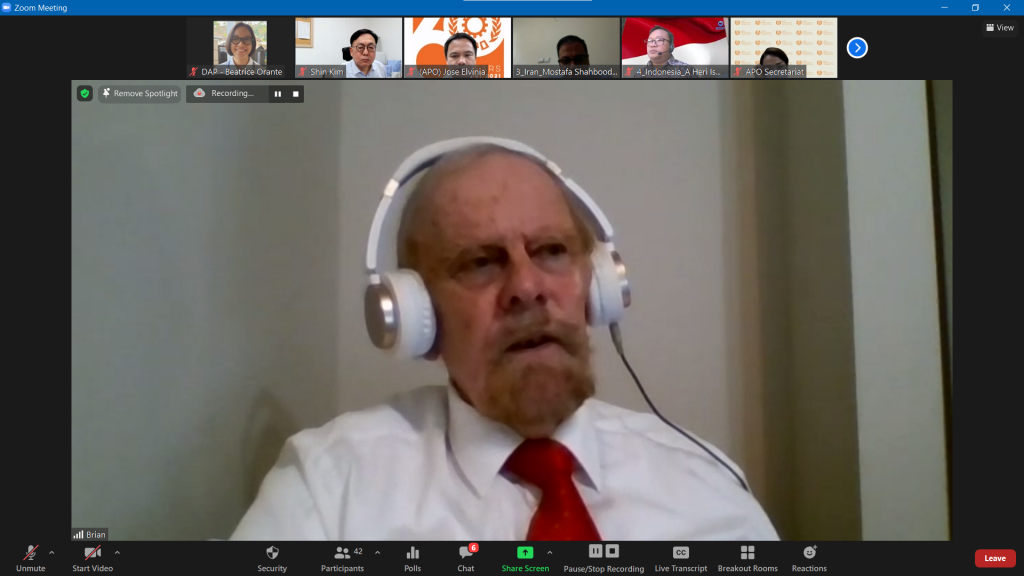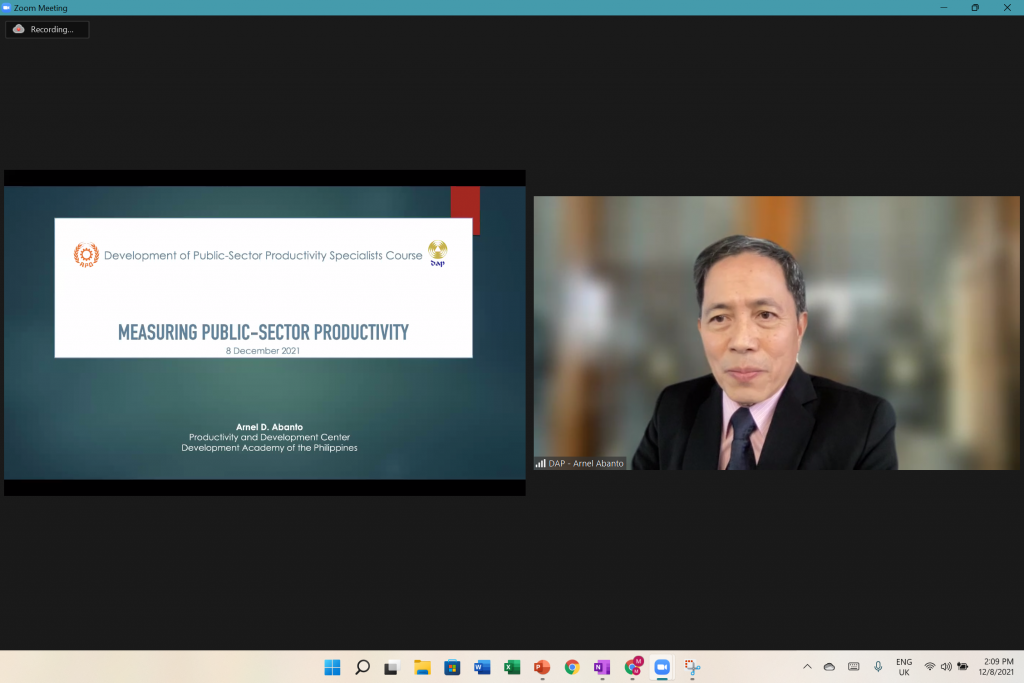The DAP, through the Center of Excellence – Public Sector Productivity, held this year’s first batch of the Development of Public Sector Productivity Specialists Foundation Course (DPSPS FC) from 16 to 20 May 2022. The five-day course was designed to equip staff and officers of public sector organizations’ management divisions with competencies in measurement, analysis, planning, and troubleshooting to increase their respective organizations’ productivity.
Twenty participants from the Department of the Interior and Local Government – National Capital Region (DILG-NCR), Department of Labor and Employment (DOLE) – Regional Offices 1 and 5, Maritime Industry Authority (MARINA), Philippine Health Insurance Corporation (PHIC) Regional Office – CAR, and Department of Education (DepEd) – Ignacio Villamor Senior High School completed this training program.
During the course, the participants listened to lectures and applied their learnings by measuring their organization’s productivity and diagnosing existing problems, and developing productivity improvement projects. A week after the training, the participants are expected to submit their respective Productivity Improvement Plan.
Improving public sector productivity
In her welcome remarks, Imelda Caluen, Managing Director of the DAP-Center for Governance, acknowledged how the present interlocking challenges put pressure on the Philippine public sector to continuously perform internal and external tasks more efficiently and effectively. To meet the changing demands of stakeholders and the public with limited resources, governments and organizations around the world are pushed to shift to more productive means of doing their job.
Mr. Peter Dan B. Baon, Program Manager of the COE-PSP, served as the speaker for the first session, entitled Understanding Public Sector Productivity Concepts and Principles. He talked about productivity as a technical, social, and management concept and its importance in the context of the public sector.
The session entitled, “Measuring Productivity in the Public Sector,†tackled the Productivity Measurement Framework and the key considerations and challenges in measuring Public Sector Productivity. The resource persons, Ms. Rose Ann Camille Caliso, Mr. Philip Ryan Junginger, and Ms. Jenifer Camilon expounded on how PSP measurement allows leaders and policymakers to assess productivity trends within the public sector, improve accountability over the use of resources, determine where to allocate resources where they are used most effectively, and provide feedback on policy initiatives. For their session activity, the participating agencies were tasked to compute their productivity using the productivity measurement tool provided to them.
The third session, entitled Diagnosing and Analyzing Productivity, was facilitated by Ms. Elena Cruz, Former Vice-President of the Development Academy of the Philippines and Managing Director of the DAP Center for Knowledge Management. Ms. Cruz discussed how to diagnose productivity problems in the public sector using the PDCA (Plan, Do, Check, Act) Cycle and the Lean Management principles and concepts based on the Toyota Production System (TPS).
The session, entitled Identifying Productivity Improvement, discussed how to identify and plan productivity improvements that will address productivity problems identified in the previous session. Ms. Niña Estudillo, international resource person in productivity and quality courses of Tokyo-based Asian Productivity Organization (APO) introduced tools and techniques for productivity improvement, zeroing in on Quality Circle and Business Process Re-Engineering (BPR).
For the final session, presenters from different public sector organizations shared their PSP best practices and experiences. Kenjave Mark Parlero, Designated Head of HR Academy Human Resource Management and Development Office at the City Government of General Santos, together with his colleagues, Jose Amagan Jr. and Teodoro Barcelona Jr., shared their experience in planning and implementing the project entitled “High-Personal Effectiveness Through Resources Allocation (HI-PERA). Dr. Juliet J. Balderas, Management Service Department Head of Office of Strategy Management at the Philippine Heart Center presented about Sustaining Business Excellence through Unit Scoreboards as Execution Mechanism for Increased Individual Performance and Breakthrough Results. Lastly, Dr. Teresita A. Tabaog, Assistant Regional Director at the Department of Science and Technology (DOST) – Region 2 shared about DOST’s Performance Excellence Team and Initiatives during the Pandemic.
To formally close the program, DAP President and CEO Atty. Engelbert C. Caronan, Jr. left a timely reminder to all the participants. He noted, “in an increasingly volatile, uncertain, complex, and ambiguous world, you being considered the future public sector productivity specialists are expected to strengthen your organization, while also contributing to the sectoral and the national productivity improvement. This is a reminder for all of us to do much good; bear in mind that policy decisions that are data-driven alongside citizen needs make a government future-ready.â€


